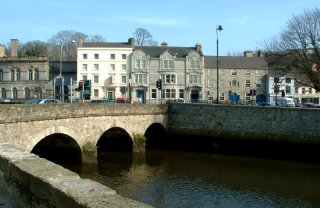A Newry friend of mature years was clearing out old papers of his late father when he discovered the following offering, that he rightly considered might be of interest to the Newry Journal. We are happy to reproduce it here (in two parts).
For family reasons, the subject will remain anonymous. From our point of view the chief lesson of the account is that hardship and deprivation were certainly not exclusive to one community, even back in the 1920s.
Stone of the Heart
My earliest memories of my childhood in the 1920s are of going to a Roman Catholic school, which was the only school in the area. The ——- children were the only Protestant children in the school, which was in Ballinliss, Killeavy. The Presbyterian clergyman used to ride to school on a cycle to give us Religious Instruction.
My father left very early for work; he walked to work and back, a journey of eight miles each way. We were always in bed when he left the house and back in bed when he came home. We only saw him on Sundays. He was a stone cutter, or stonemason. His name was —– —–. He was involved in the building of chapels and churches and monumental works. He worked with granite quarried in Crowreagh. He often suffered terribly from hand injuries. There was no free medical care and if he stayed off work because of injury he got no pay; and there was no dole. When I hear people referring to ‘second-class citizens’ these days, I realise that we must have been third-class citizens. Luckily, we usually found neighbours very generous.
We were reared by my sister —– who devoted her whole life to bringing us up because our mother had died when we were very young.
Living conditions in those days were horrible. Most of the houses we lived in had earthen floors and bare walls. At night, we could see the moon and stars through the holes in the roof. We had to move the beds to stay dry when it rained. Our beds were makeshift, made from sacks sewn together and stuffed with straw or chaff. We quite often had rats and mice in the straw; they came in for the heat. The boys all slept in one bed along with the fleas. Our blankets consisted of any old coat or bag to keep us warm.
There were no toilets or toilet paper. No one ever had any coal. My father earned about five shillings a week. The only people in the area who had anything were the small farmers, and they were kind to us.
I suppose that in a way we were quite lucky; our health held out. In those days, a single doctor with a bicycle looked after a large area. He only treated people with money to pay. Ambulances were in short supply and the drivers were not qualified in First Aid. People died of simple ailments.
My father went to
